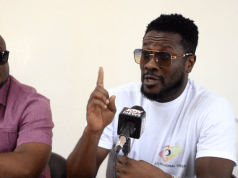By Ahumah Ocansey
It is paradoxical that the vehicle that Ghana is riding on to reach the heights of its material and socio-economic progress has structural defects that impede its movement, thus slowing the rate of acceleration to our destination. I am referring to the 1992 Constitution.
A Constitutional Review Commission (CRC) under Dr Fiawoo did some work on its review but I am not certain whether Parliament has studied the Report and discussed the Commission’s work. I hereby submit that it was time we reviewed it.
What the Constitution represents for Ghanaians, and in what light we should treasure it, has been expressed in various dicta of judges.
In Tuffuor v Attorney-General [1980] GLR 637 at 647, the Court of Appeal, sitting as SC said, per Sowah JSC said:
“A written Constitution such as ours is not an ordinary Act of Parliament. It embodies the will of a people. It also mirrors their history. Account, therefore, needs to be taken of it as a landmark in a people’s search for progress. It contains within it their aspirations and their hopes for a better and fuller life. The Constitution has its letter of the law. Equally, the Constitution has its spirit. It is the fountain-head for the authority which each of the three arms of government possesses and exercises”.
The dictum of Sowah JSC encapsulates the scope of what our Constitution exists for, and what it means to us.
The question which falls for determination is: What is to be done when a Constitutional provision is causing dissonance within the Ghanaian society?
In this article, I shall express my opinion on a few of the many articles that must be reviewed, without prejudice to what the CRC might have done.
Censorship
Article 21 (1c) says: All persons shall have right to freedom to practice any religion and to manifest such practice.
Article 162 (2) states: Subject to this Constitution and any other law not inconsistent with this Constitution, there shall be no censorship in Ghana.
Article 21 allows whatever religious and spiritual inclinations a person has to be practiced in Ghana without any disturbance or interference.
And article 162 (2) gives a free, unhindered scope for a person to propagate whatever he fancies, more especially through any of the media, without recourse to its social or spiritual effect on the nation.
I submit that these two articles could explain the increasing prevalence of sorcery, ritual murders, and hideous practices in the Ghanaian society.
Further, we also have increasing telecast of pseudo pornographic and violent programmes on various TV stations.
Censorship existed up to 1992, and films were censored before being shown, and the essence was to protect the social conscience of Ghanaians from overt violence and sexual immorality, while, at the same time, safeguarding children from subtle subconscious influences that could affect their adult life, or implant negative, undesirable habits in them. Secondly, not all sorts of materials were aired on radio.
Censorship must come back, along with prohibition of sorcery in society.
The Constitution approves of, and protects such practices in Ghana!
Land ownership
Article 257 (1) prescribes, All public lands in Ghana shall be vested in the President on behalf of, and in trust for, the people of Ghana.
Article 267 (1) states: All stool lands in Ghana shall vest in the appropriate stool on behalf of, and in trust for the subjects of the stool in accordance with customary law and usage.
Whereas it may not appear obvious, Ghana’s Constitution upholds feudalism in this 21st century!
The control of land by the stools is the source of the innumerable chieftaincy disputes and occasional blood-baths in the country.
It is, undeniably, the source of the litany of land cases in our courts. Lastly, the law has frustrated our physical planning and development and created slums, devastated our forests, and upturned the ecological balance, of which galamsey is an excellent example.
All lands must be nationalised, and properly planned! In other words, article 257 (1), must be plenary and all-inclusive.
Council of State
Article 89 (1) authorises: There shall be a Council of State to counsel the President in the performance of his functions.
The drafters of the Constitution might have taken inspiration from what prevails at the chief’s palace, where we have a council of elders to deliberate with the Chief on matters within his jurisdiction, and thus incorporated such a mechanism into the Constitution.
With due respect, I find this Council a costly and unnecessary appendage to the Presidency. How could an amorphous but elderly people without ideological definition advice the President?
The best advisers to the President are experts accomplished in their fields, of whom the President has personal knowledge, trust, and confidence. At any rate, the Cabinet is also there to shape his decisions.
The Council of State must be scrapped.
Ministers of State
Article 78(1) mandates: Ministers of State shall be appointed by the President with the approval of Parliament…except that the majority of Ministers of State shall be appointed from among members of Parliament.
This provision has affected the efficiency of Ministers of State, and impacted the overall governance of Ghana. What happens is that Ministers of State, being also Parliamentarians, must be present in Parliament to deliberate on matters before it, and that takes them away from their core work as Ministers. Precious time must be split between Parliament and the ministries that add up to delays in the execution of projects, and the response of the Ministers to matters placed before them.
It would be expedient for the President to have the freedom to pick his Ministers from wherever he so desires, without the restraint of the article.
The writer is a lawyer.







































